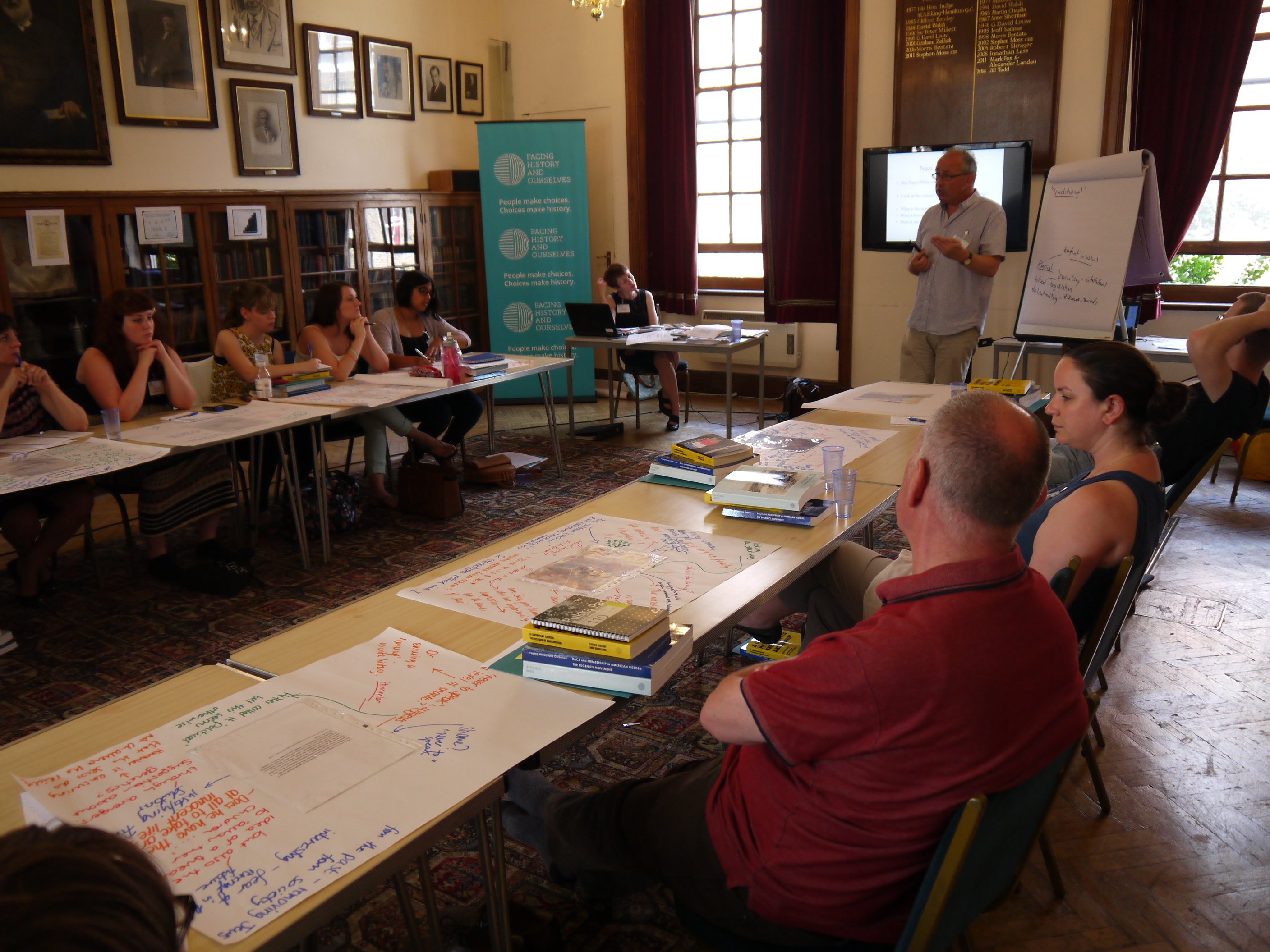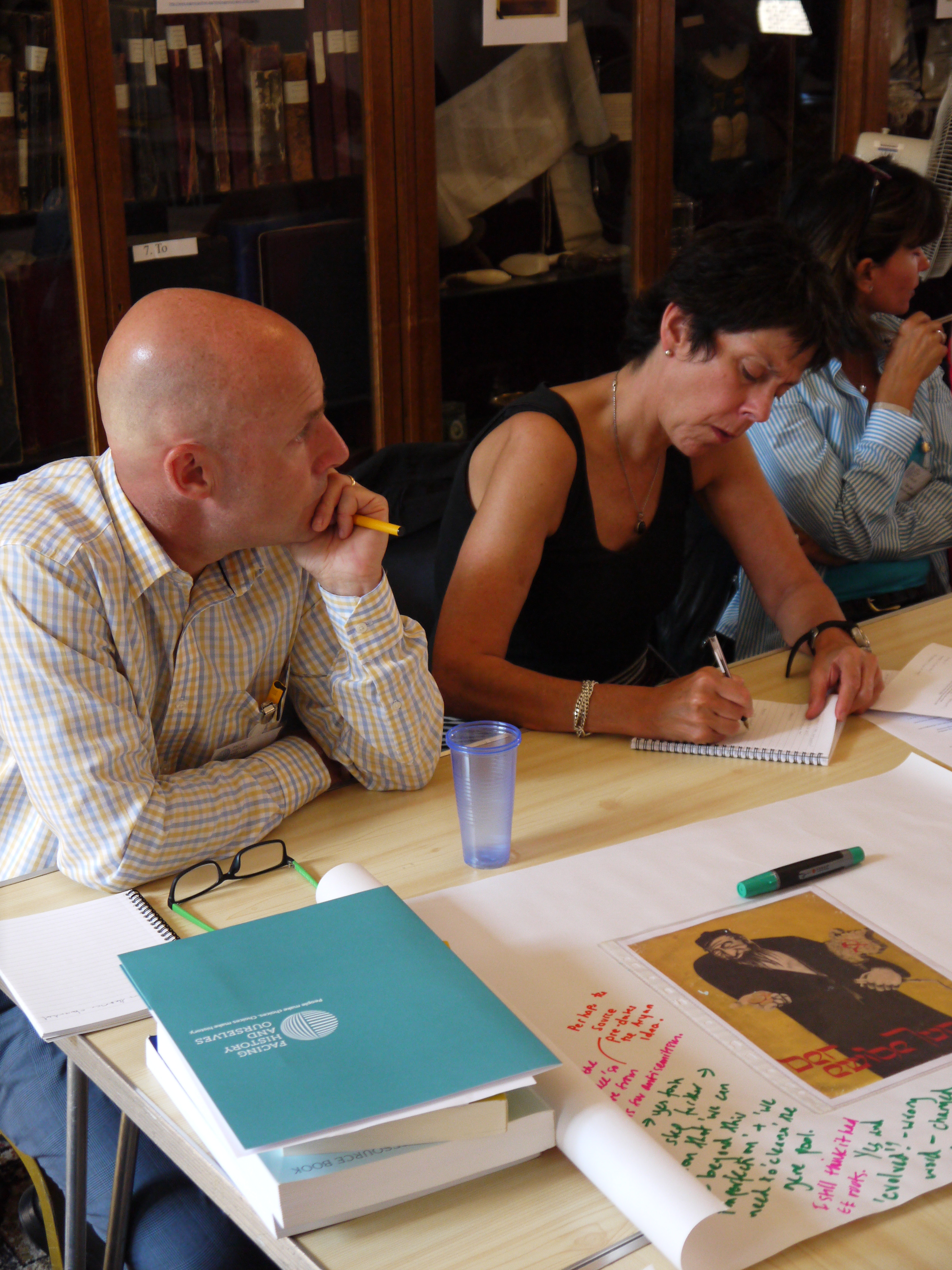This week, 16 educators in the UK are participating in our core professional development seminar “Facing History and Ourselves: Holocaust and Human Behaviour.” Over the course of the seminar, the teachers – all from different schools and backgrounds – will examine the history of the Holocaust and connect this history to our world today.
The teachers ask themselves difficult questions, such as How is history shaped by hatred, indifference, and denial, as well as by caring, compassion, and responsibility?, and study the range of choices that led to the failure of democracy in Weimar Germany and ultimately to the murder of millions of Jews and other targeted groups during the Holocaust. They also try out teaching strategies for fostering engagement and active learning and discover multimedia resources and activities to use in their classrooms.
 Participants in Facing History and Ourselves: Holocaust and Human Behaviour seminar listen to Senior Programme Coordinator Michael McIntyre.
Participants in Facing History and Ourselves: Holocaust and Human Behaviour seminar listen to Senior Programme Coordinator Michael McIntyre.The second day of the seminar, which is being held at the Halcyon London International School, took place yesterday and participants practiced a Silent Conversation teaching strategy that brings groups of students together for a conversation performed solely in writing on one big sheet of paper. The exercise helps young people (and teachers!) slow down their thinking, focus on topics, and consider the views of others.
The Silent Conversation teaching strategy can be done with text or visual images, quotations or historical documents, or excerpts from novels or poetry. All you need is a prompt, paper, and markers or pens (some tape to hang those big paper sheets on the wall is helpful, too).
Find out more about building a Silent Conversation, including connection questions and ideas for the strategy with your students.
The seminar was held as part of Facing History’s summer professional development, taking place now, online and around the world. Explore upcoming opportunities and register today.


